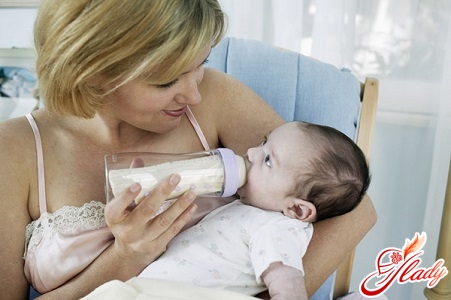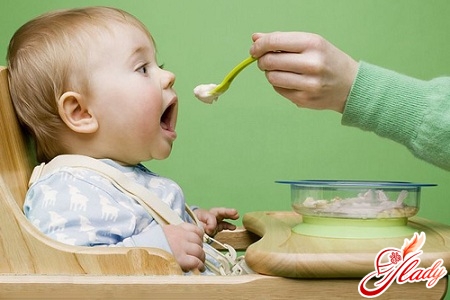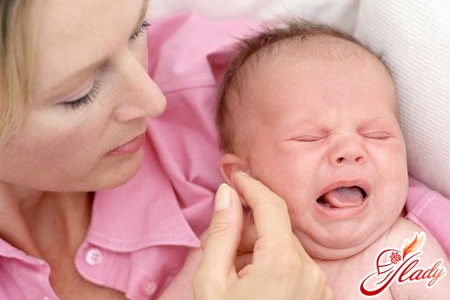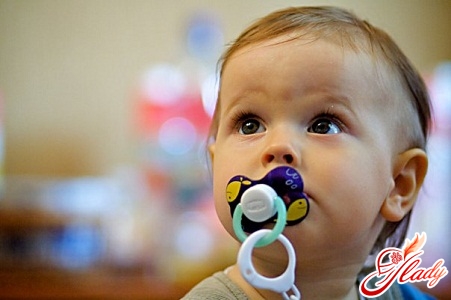 The child's body is very fragile.And, unfortunately, various disorders are not so rare - especially digestive disorders. Young mothers very often complain of constipation in children. Are you reading these lines? Then you are probably familiar with this problem. Let's try to figure it out together. And first, let's find out what constipation is. Doctors give this phenomenon the following definition - a decrease in stool frequency compared to the individual characteristics of the child's body. In addition, constipation also includes difficult bowel movements. In fairness, it should be noted that it is sometimes quite difficult to detect constipation in children. And this is not surprising - the frequency of their stool changes extremely often - depending on the age of the child, the type of feeding the child and many other factors. It is quite natural that mothers ask the question about what the frequency of stool should be. It is very difficult to answer this question unequivocally. However, doctors have established average age norms:
The child's body is very fragile.And, unfortunately, various disorders are not so rare - especially digestive disorders. Young mothers very often complain of constipation in children. Are you reading these lines? Then you are probably familiar with this problem. Let's try to figure it out together. And first, let's find out what constipation is. Doctors give this phenomenon the following definition - a decrease in stool frequency compared to the individual characteristics of the child's body. In addition, constipation also includes difficult bowel movements. In fairness, it should be noted that it is sometimes quite difficult to detect constipation in children. And this is not surprising - the frequency of their stool changes extremely often - depending on the age of the child, the type of feeding the child and many other factors. It is quite natural that mothers ask the question about what the frequency of stool should be. It is very difficult to answer this question unequivocally. However, doctors have established average age norms:
- Children breastfed - from one to seven times
- Children on artificial feeding - two to three times a day
- Children from 1 to 3 years old - five to six times a week
- Children older than 3 years - at least four times a week
If the child has any of the following symptoms:systematic constipation, it is possible to assume the presence of functional intestinal pathologies. In addition, the culprits may be errors in nutrition, somatic diseases, and sometimes even congenital pathologies. Let's talk about this in more detail.
Who is to blame and what to do?
There are quite a lot of different reasons that can provoke the development of constipation. But we will focus only on the most common factors:
- Intestinal motility.Often the cause of constipation is a disturbance of normal intestinal motility, which has both a nervous and endocrine origin. Such cases account for up to 20% of all constipation.
- Intestinal infections and dysbacteriosis.In principle, dysbacteriosis is a virtually constant consequence of intestinal infection, so we combined these two causes. Most often, parents associate dysbacteriosis with diarrhea. However, constipation is no less common. Therefore, if you encounter such a problem, immediately take a stool test.
- Hereditary diseases.Diseases such as Hirschsprung's disease, hypothyroidism, and cystic fibrosis should not be overlooked. They can also cause systematic constipation in children. As a rule, they occur from the very first months of a child's life.
- Alimentary factors.The diet is also of great importance for the normal digestive process of the child. Moreover, not only the diet, but also the diet itself. The child's menu should contain dietary fiber, liquid - we will talk about this a little below.
- Taking pharmacological drugs.Some medications can also lead to the development of constipation. As a rule, the doctor should warn parents about possible side effects. But the parents themselves should not be lazy and be sure to carefully read all the annotations to the medications they give to their children.
- Lack of movement.As you know, for normal bowel function, a child must move enough. Of course, for children, lack of movement is not a pressing problem, because it is very difficult to keep little ones in one place. But there are situations when this reason also takes place - for example, if a child is sick.
- Psychological reasons.In some cases, constipation has a psychological origin, such as stress or fear. For example, if a child has an anal fissure, he or she may hold back the urge to defecate, fearing pain.
Mom's milk is a panacea?
Let's take a closer look at thisaspect, such as constipation in a breastfed baby. This issue raises the most questions and discussions among young parents. Can a child who is exclusively breastfed have problems with stool? Pediatricians say that this is indeed possible. If a baby in the first few months of life does not have a stool for 24 hours, most likely he simply does not have enough mother's milk. This should alert parents. Contact a pediatrician - he will help to determine the cause of the problem and find an adequate solution. In addition, in the development of any child there are so-called "growth spurts". During these periods, the child's body requires much more milk, which is why stool becomes more rare. It is explained very simply: there is very little fecal matter in the intestines, so it is almost impossible to push it out. As a result, significant dehydration of feces occurs - they become very hard and it is difficult for the child to get rid of them. This period does not last long - a week at most. After this, the mother's body adapts to the baby's needs, milk production increases, and the baby's stool normalizes. As mentioned above, at the age of 6 months to a year, the stool should be at least 6 times a week. Although the frequency of stool should not be the only guide. It is necessary to pay attention to the child's well-being, as well as weight gain - if everything is normal, then there is nothing to worry about.
If constipation is a symptom of a disease
It has already been mentioned above that constipation canbe evidence of the presence of some pathology in the child's body. As a rule, constipation is not the only symptom, so diagnosing the disease most often does not present any difficulty for doctors. But let's still dwell on the main points:
- Dyskinesia of the large intestine.This pathology is nothing more than a violation of the motor function of the intestine. There are two types of dyskinesia: hypertonic - the muscle tone of the intestinal walls is extremely increased, which makes bowel movements extremely difficult, and hypotonic - in this case, the tone, on the contrary, is reduced. Accordingly, the intestines do not remove feces either. This pathology is diagnosed by the nature of the stool, based on a study of intestinal functions. A corrective diet and physiotherapy are used for treatment.
- Hirschsprung's disease.This disease is much less common, but it should not be overlooked. It is characterized by a congenital pathology of the structure of the large intestine - in some part of it there are no nerve endings at all, and therefore it does not participate in contraction. Treatment of such a pathology is only surgical. This operation is quite simple and does not pose any threat to the child.
- Dolichosigma.Another disorder of the intestinal structure is the presence of an extra loop of the sigmoid colon. In this case, constipation appears at an early age, immediately after the introduction of complementary foods. Treatment in most cases is also surgical.
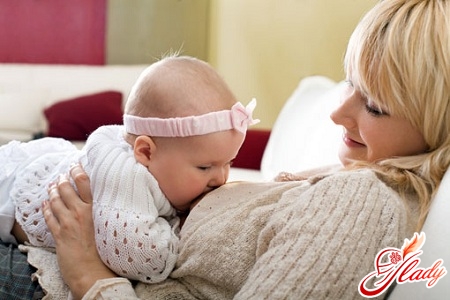
And if milk does not have a mom? Just add water…
The fact that infants are breastfedbreastfeeding are not immune to constipation, we have already found out. But what about babies who receive artificial milk formulas? Do they suffer from constipation? According to doctors - yes. Artificial formula very often becomes the main culprit of constipation in a child. Most often, the child's digestion and stool normalize quickly enough and without any intervention. However, in some cases this does not happen. And the only way to cope with this problem is to select a different type of formula. And only occasionally does this measure not help. In such cases, doctors can recommend enemas. And the formula must be diluted less concentrated. Here we smoothly move on to the next reason that can lead to the development of constipation. We are talking about a lack of fluid in the child's body. Most often, children who are artificially fed face this problem. For infants, this problem is not relevant - they get enough fluid with mother's milk. In all other cases, do not forget about the need to give your baby some water. And you need to monitor the drinking regimen of an older child more carefully - high physical activity often leads to dehydration. Because of this, the feces harden, and it becomes much more difficult for the child to remove them from the body. Introducing complementary foods In some cases, problems with the baby's stool begin from the moment complementary foods are introduced. After all, any food greatly affects the digestion process itself and, accordingly, the child's stool. For example, there is a very high probability of constipation in those children who receive protein foods - chicken, dairy products, meat - earlier than required by age. In addition, we cannot discount the fact that with the beginning of the introduction of complementary foods, many children lose interest in mother's milk for some time. And constipation is also possible during this period. In this situation, you should not panic - the stool will return to normal very quickly. If this process has dragged on for more than a week, parents can help the baby's body by monitoring its diet. And you shouldn't forget about the simple rules for introducing complementary foods - this will help avoid these problems.
And again, and again ...
What to do if there is a problemrepeats itself over and over again? The first thing you need to do is to consult a pediatrician or gastroenterologist as soon as possible. The doctor will conduct all the necessary tests to identify possible pathologies. If necessary, the doctor will prescribe treatment that will help bring the child's stool back to normal. By the way, pay special attention - in no case should you give the child ANY pharmacological drugs. This can only significantly worsen the situation. In the same case, if no serious pathologies are found in the child, a lot will depend on the parents. Psychological problem It was already mentioned above that older children may develop constipation due to psychological factors. One case of constipation, in which the child experienced pain during defecation, is enough for the child to develop a persistent fear of sitting on the potty. The child suffers the urge to defecate, the feces, which are in the intestines for a long time, lose fluid. It turns out to be a real vicious circle, which is quite difficult to break. But it is still possible. The first thing to do is to adjust the diet. Include as many fiber-containing foods as possible in the child's menu - vegetables, fruits, grains. In addition, it is necessary to ensure that the child consumes at least one teaspoon of vegetable oil per day. In addition, many children are very effectively helped by natural yogurts without any artificial additives and dyes. Do not forget about dried apricots and prunes. Of course, you should not give them to the baby in unlimited quantities, but 5 - 6 pieces will come in handy. Try to calm the child as much as possible - show restraint and patience, in no case show signs of discontent, and especially irritation. As soon as the child goes to the toilet at least once without pain, the problem will disappear on its own. Although, unfortunately, very rarely, but still there are cases when fear still remains. As a rule, this is typical for children with a neurasthenic personality type. In this case, you have to resort to the help of a child psychologist. In addition, sometimes the doctor can prescribe pharmacological drugs - most often homeopathic remedies.
Help kids
So, constipation in a breastfed baby: what to do?If we are talking about a baby who eats mother's milk, it is very important to pay attention to the mother's diet. This measure will most likely regulate the baby's stool. The mother's menu should contain a large amount of fiber and products that stimulate the process of defecation. Such products include:
- Raw vegetables, except for cabbage - it increases gas formation and can lead to the appearance of intestinal colic
- Bread from a flour of a rough grinding
- Fruits, especially apples and pears
- Sour milk products - kefir, fermented baked milk, yogurt
- Dried apricots, prunes, plums
As a rule, the first effect of such a dietnutrition becomes noticeable by the end of the second day. Doctors often recommend cleansing enemas. It is carried out quite simply - boil half a glass of water, cool it to room temperature. Fill a baby bulb with water, lubricate the tip and carefully insert it into the anus by one and a half to two centimeters. Little by little, insert all the water and squeeze the child's buttocks for a minute. Often, an enema can be replaced with a gas-discharge tube. It is inserted into the child's anus in exactly the same way as a bulb. The effectiveness is no worse than that of a cleansing enema. Gases often come out with feces, mostly due to the fact that the anal sphincter is irritated. But doctors strongly advise against abusing either cleansing enemas or gas-discharge tubes. Also try therapeutic exercises and tummy massage. Place the baby on its back, lubricate your fingers with massage oil and stroke the tummy clockwise, lightly, very carefully, pressing on the tummy. The massage should last at least 5 minutes. After that, carefully lift the baby's legs, pressing his knees to the tummy. Repeat this exercise 15 times. If the doctor allows, you can try to solve the problem with glycerin suppositories. These suppositories are shaped like a bullet and are made of glycerin, without any additional impurities. Therefore, they are absolutely harmless even for the smallest children. But it is still worth consulting with a doctor. The principle of action of such suppositories is very simple: They have a reflex effect on the rectum, which stimulates the urge to defecate. In addition, these suppositories lubricate the anus, which also greatly facilitates the process of defecation. However, you should not get carried away with these drugs. Of course, suppositories are absolutely safe for the child's health in terms of their composition. However, there is a high risk of developing addiction. And as a result, it will be very difficult for a child to go to the toilet without them. Before using, be sure to consult your doctor.
When do you need to sound an alarm?
Are there any cases in which parentsshould you sound the alarm immediately? Of course, yes! First of all, infants. If your infant has not had a bowel movement for more than 24 hours, take your child to the doctor as soon as possible. If you do not have this opportunity, call an ambulance. Of course, constipation is most likely caused by a lack of milk or other completely harmless reasons. But in rare cases, constipation in an infant may indicate the development of intestinal obstruction. This condition poses a very serious threat not only to the health, but also to the life of the baby. And in this case, urgent surgical intervention is required. If we are talking about older children, the alarm bells are:
- Intense pain. If the baby complains of abdominal pain or has flatulence, this may indicate intestinal obstruction or other serious illnesses.
- The child's pallor.If the child is pale, parents should also be concerned. Especially if the paleness is accompanied by lethargy and increased fatigue of the child. This may indicate severe intoxication of the body.
- Blood in the stool. There is probably no need to explain the danger of this phenomenon. In some cases, blood in the stool may indicate internal bleeding - an extremely dangerous condition.
In conclusion, I would like to remind parents,that the regularity of a child's bowel movements varies very individually. For some, once a day is the norm, while for others, three times a week is enough. The main guideline is the child's well-being. If the stool is soft and the child has no problems with the process of defecation itself, then there is nothing to worry about. Although, for your own peace of mind, you can always consult a doctor. We recommend reading:




